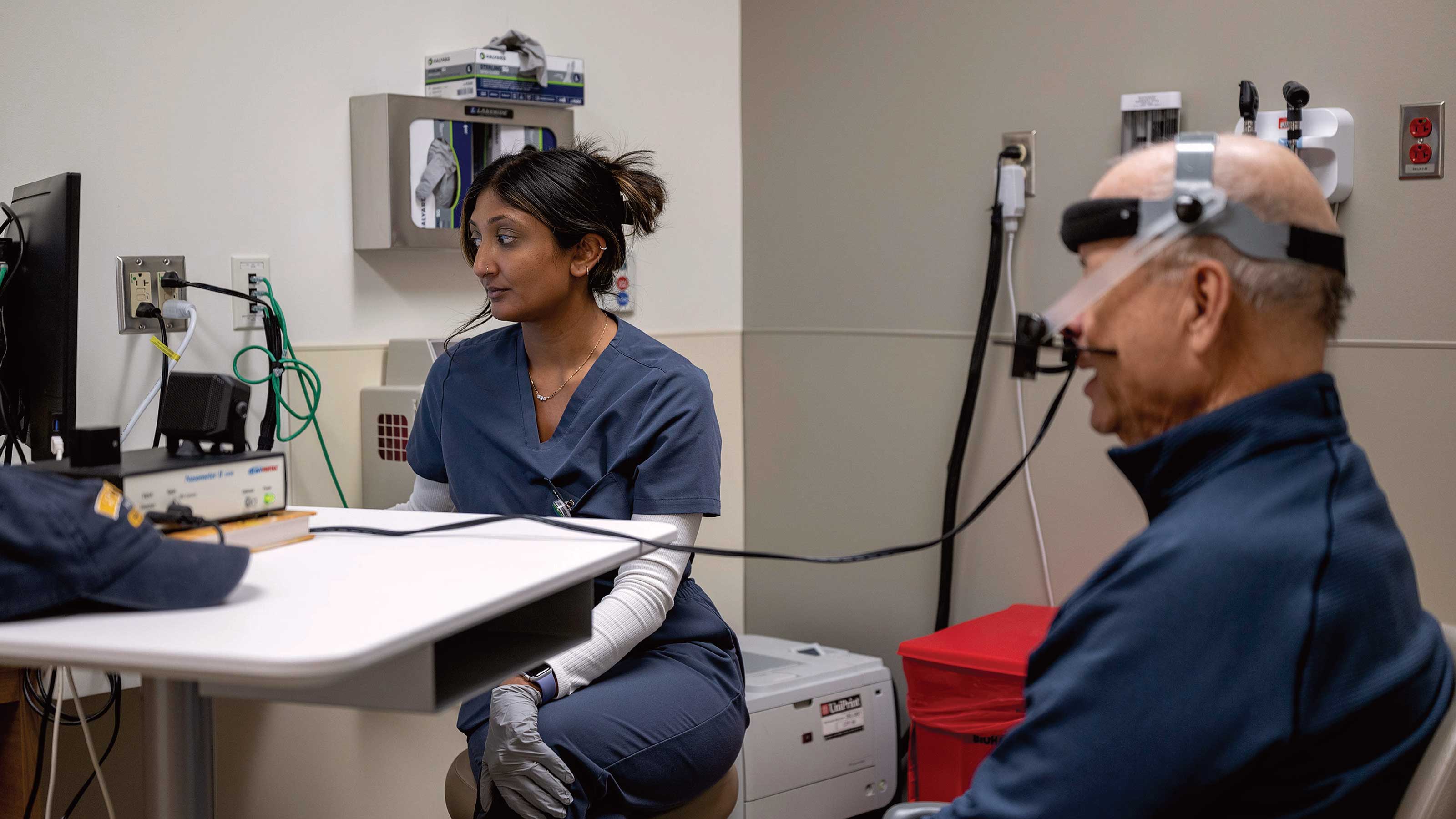
As you approach menopause or even after it, you might notice you’re more apt to forget people’s names or where you put your cellphone, glasses or keys.
That’s common. Your occasional forgetfulness can come with the ups and downs of changing hormones. You might worry that your occasional memory lapses are tied to something more serious than the decline in estrogen and progesterone, and instead may be early signs of dementia.
Though there have been many studies on the link between menopause and dementia, there’s no evidence to show that going through menopause naturally will put you at risk of dementia.
However, you do have a higher risk of dementia if you have your ovaries removed several years before the typical time when most people go through menopause (sometime between the age of 45 and 55). This suggests there may be a link between how your brain functions and the hormones your ovaries produce and release.
Hormones and brain function
Brain function and estrogen are connected. The brain contains a lot of estrogen receptors. Still, many factors contribute to dementia. Age and family history are among the most important. As you get older, you’re at higher risk of dementia. If you’ve had family members with the disease, that also could put you at greater risk for developing it.
Women are more likely to have dementia than men, but women also live longer, which could explain some of the higher rates of dementia diagnosis.
Researchers are still trying to determine exactly how estrogen affects brain health, if at all. The hope is that future studies will reveal more.
Meanwhile, if you’re having trouble with forgetfulness or attention around the time of menopause, don’t worry: It’s not necessarily an early sign of dementia.
Can menopause cause brain fog?
Memory lapses and having a difficult time concentrating aren’t unusual during the transition to menopause. They may be caused, at least in part, by some of the other symptoms of menopause: hot flashes, night sweats and insomnia. At times, those symptoms last well past menopause, which marks a year after your last period.
Trouble sleeping can definitely affect your mood, how well you focus and how sharp your memory is. When insomnia, hot flashes and night sweats go away, it’s possible your brain fog could go away as well. So, it’s likely that whatever brain fog you might experience as you enter menopause will be temporary.
Brain fog vs. dementia
Brain fog and dementia are different. Dementia is a disease that affects memory but also your ability to function in life – to work, socialize and take care of yourself. If your memory issues are keeping you from functioning, then you may want to talk to your health care provider.
Does hormone replacement therapy reduce dementia risk?
The results of research studies conflict. So, at this point, it’s not clear that if you get menopausal hormone therapy, it will affect your risk of getting dementia. If you’re getting menopausal hormone therapy and you experience fewer memory lapses, that could be because the additional hormones reduce the number of hot flashes and night sweats, which allows you to get better sleep. Sleep does affect memory.
Some studies show that brain function worsened for people who took estrogen later in life, particularly when they started many years after their last period. However, other studies suggest there could be a window of time immediately after menopause when hormone replacement could delay the onset of dementia.
Because the benefit hasn’t been proven to outweigh any risk of replacing hormones, I wouldn’t recommend getting hormone replacement for the sole purpose of staving off dementia.
How to protect your memory and brain health during menopause
There are some steps you can take to protect your brain and lower your risk of dementia:
- Not smoking
- Drinking very little alcohol
- Staying physically active
- Staying mentally active through work and/or hobbies
- Eating a mostly plant-based diet or the Mediterranean diet
Various herbs and other products are marketed as brain boosters, but I don’t think any of them have been proven in studies to be beneficial.
It’s typical to have concerns about menopause. It’s a normal part of life. But you don’t need to worry about brain changes at this point in your life.
Most of the time, dementia starts much later in life than menopause.

Ready to learn more about women’s health?
The Center for Women’s Health provides personalized care for women across their lifespans.
Expert care starts here




